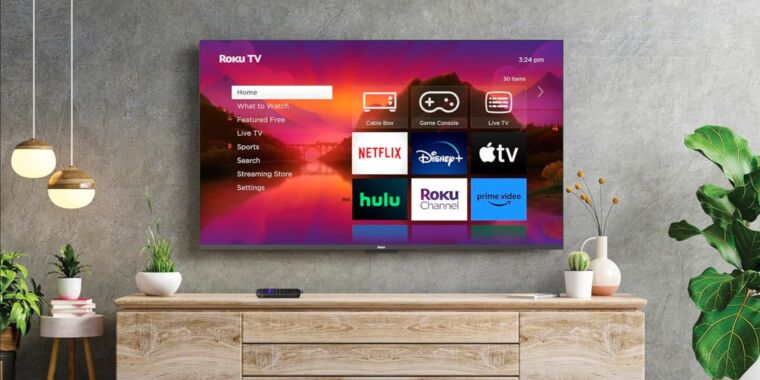- cross-posted to:
- [email protected]
- cross-posted to:
- [email protected]
A patent application from the company spotted by Lowpass describes a system for displaying ads over any device connected over HDMI, a list that could include cable boxes, game consoles, DVD or Blu-ray players, PCs, or even other video streaming devices. Roku filed for the patent in August 2023 and it was published in November 2023, though it hasn’t yet been granted.
The technology described would detect whether content was paused in multiple ways—if the video being displayed is static, if there’s no audio being played, if a pause symbol is shown anywhere on screen, or if (on a TV with HDMI-CEC enabled) a pause signal has been received from some passthrough remote control. The system would analyze the paused image and use metadata “to identify one or more objects” in the video frame, transmit that identification information to a network, and receive and display a “relevant ad” over top of whatever the paused content is.



Or just buy whatever TV you want, never connect it to the internet, and then plug in a separate box where you’ll actually get the content from.
Smart TVs aren’t actually that smart if they have no internet and you entirely bypass their home screen to go straight to whatever box you have.
Some will show ads anyway, or so I’ve heard. They’re fn asshats
I don’t see how. Unless it has, like, 20 predefined stored ads. But even then it might be refreshing in 20 years to see a commercial for Kia. Be like, “Oh yeah! I remember Kia! Man, crazy how long it’s been since Kia’s have been around. Such a bad car.”
I wish I could find the source but I do remember seeing an article about it. Maybe it’s a broken memory.
IIRC, it was Vizio brand TVs that had not yet been connected to a network and they were already showing ads implying that they had in fact been shipped with ads in their cache, or perhaps having been connected to a network for testing